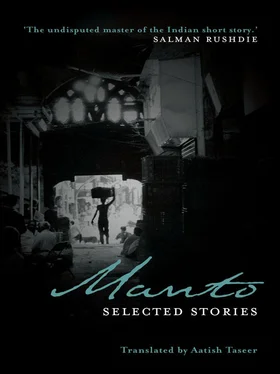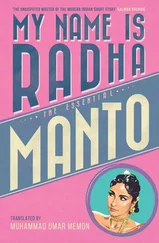Ghulam Ali became famous throughout Amritsar after he was made Shahzada. It was a small town; it didn’t take long to acquire either a good reputation or a bad one. Where average men were concerned, Amritsaris were very discerning. They were forever exposing each other’s failings, but turned a blind eye to those of their leaders. Perhaps because they were always hungry for a political movement or a stirring speech. A man could be white one day and black the next, but in Amritsar, by changing his colours, a politician could stay alive quite a while. It was a different time — all the big leaders were in jail, their chairs were empty, and though the people had no special need of leaders, the current movement desperately needed men willing to sit, khadi clad, for a day or two in Jallianwala Bagh’s big tents before making a speech and getting arrested.
At the time, new dictatorships sprang up all across Europe. Hitler and Mussolini were being heavily promoted. And perhaps under this influence, the Congress party began churning out ‘dictators’ of its own. By the time it came round to Shahzada Ghulam Ali’s turn, some forty ‘dictators’ had already been arrested.
I rushed to Jallianwala Bagh as soon as I found out that Ghulam Ali had been made dictator. Outside the big tent, there was a volunteers’ guard. But when Ghulam Ali saw me from inside, he waved me in. There was a mattress on the floor, over which a khadi cover had been draped. It was on this that Ghulam, leaning against a bolster, sat with a few khadi clad merchants, discussing vegetables, I believe. In a few a minutes, he finished this conversation, gave a few volunteers their orders, and turned his attention towards me. It tickled me to see this uncharacteristic seriousness, and when he sent away the volunteers, I laughed out loud. ‘So then, Mr Shahzada, tell me more?’
And though I sat there at length, poking fun at Ghulam Ali, I sensed a change in him, a change of which he was not unaware himself. He said many times to me, ‘Don’t Saadat, don’t make fun of me. I know that the head is small and the crown big, but from now on, this is my life.’
Every evening Jallianwala Bagh filled with people. Because I came early, I found a place close to the platform. Ghulam Ali appeared after loud applause, handsome and attractive, in spotless white khadi clothes. His rakish charm made him seem still more attractive. He spoke for about an hour. During the course of the speech, there were many moments when the hairs on my body stood on end. Once or twice, I even wished that I could explode like a bomb, thinking perhaps India might become free if I did.
The years that have passed since then! To now recount that time and the feelings it aroused in us, is difficult. But as I sit down to write this story, and think of Ghulam Ali’s speech, it is the voice of youth, a youth wholly untainted by politics, that rings in my ears. It contained the pure fearlessness of a young man who seemed, in a moment, to be able to grab a young woman, also travelling the road, and to say to her, ‘Listen, I want you’, and in the next, to be imprisoned by the law. Since then, I’ve had the good fortune to listen to many more speeches, but that madness, that extreme youth, that adolescent feeling, the boyish timbre I heard that night in Shahzada Ghulam Ali’s voice, I haven’t heard so much as a faint echo of again. The speeches I hear now are cold, serious, heavy with stale politics and writerly glibness.
At that time, both the government as well as the public were still inexperienced. They were at each other’s throats with no thought of the consequences. The government imprisoned people without understanding what it meant. And the imprisoned went to jail without knowing what their objective was.
It was a sham of sorts, but a combustible sham. People leapt up like flames, burnt and died, then flamed again. And with this flaming and dying, the sad, sleep-filled atmosphere of bondage was infused with a fiery dynamism.
When Shahzada Ghulam Ali’s speech ended, all of Jallianwala Bagh was alight with applause and slogans. Ghulam Ali’s face glowed with emotion. When I went up to the stage and pressed his hand in congratulation, I could feel it shaking. He seemed breathless. Besides the passion in his eyes, I thought I also saw a kind of hunger. He seemed to be searching for someone. And then suddenly, he separated his hand from mine and walked in the direction of a jasmine bush. A girl stood there, dressed in a spotless khadi sari.
The next day, I heard that Shahzada Ghulam Ali was in the grip of a new love. It was the girl I had seen standing deferentially near the jasmine bush. And his love was not unreturned; Nigar was just as captivated by him. As apparent from the name, Nigar was a Muslim girl, and an orphan. She was a nurse at the women’s hospital and perhaps the first Muslim girl to step out of purdah to join the Congress’ movement.
Her khadi dress, her participation in the Congress’ activities and her work at the hospital had worn down Nigar’s Islamic rigidity — that particular severity one finds in all Muslim girls — softening her slightly.
She was not beautiful, but a singular specimen of womanhood. The combination of humility and selflessness that characterises dutiful Hindu women, making them worthy of worship, was blended lightly into Nigar, producing a colour in her that lifted the soul. Though at the time it did not occur to me, as I write now, and think of Nigar, I feel that she was like a beguiling compound of Muslim prayer and Hindu ritual.
Nigar worshipped Shahzada Ghulam Ali and he, too, was devoted to her. When I spoke to him about her, I discovered that they had met during the Congress’ movement. And within a few days of their first meeting, they had sworn love to one another.
Ghulam Ali intended to make Nigar his wife before he went to jail. I can’t remember what his reasons were, as he could just as easily have married her when he returned from jail. In those days, no one went for very long: three months at the minimum and a year at the outside; some were released after no more than fifteen to twenty days so that room could be made for new prisoners. But he’d expressed this intention to Nigar and she was absolutely ready. All that was left to be done was to obtain Babaji’s blessings.
Babaji, as you might know, was an important figure. At the time, he was staying a little outside the city, at the luxurious house of the millionaire Lala Hari Ram Siraf. He spent most of his time at the ashram he’d built in a nearby village, but when in Amritsar, he only stayed at Lala Hari Ram’s house. With his arrival, the house became a place of pilgrimage for his followers. All day a stream of devotees flowed through it. At the end of the day, he would sit outside the house, on a raised platform under a cluster of mango trees, and meet people and receive donations for his ashram. Once he’d listened to a few minutes of devotional singing, he’d bring the audience to an end.
Babaji was a pious, compassionate, learned man and for this reason Hindus, Muslims, Sikhs and untouchables alike became his followers, considering him their spiritual leader.
He showed no interest in politics, but it was an open secret that every political movement in Punjab began and ended at his ashram.
In the eyes of the government, he was a problem with no solution, a political enigma that its mightiest intellectuals couldn’t crack. A faint smile from his thin lips was interpreted in a thousand different ways. And Babaji would unveil yet another meaning, leaving a mesmerised public still more mesmerised.
The ongoing civil disobedience movement in Amritsar, which was rapidly sending people to prison, was the work of Babaji’s ashram. Every evening, in his open meetings, he would issue a small statement from his toothless mouth regarding the freedom movement in Punjab and the government’s draconian policies. The most important leaders would cling to his words as though they were sacred amulets.
Читать дальше












